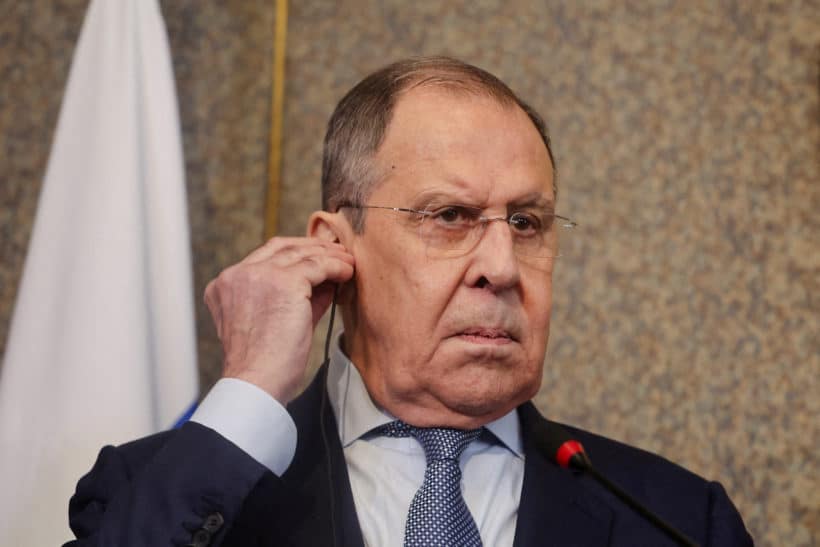
KAMPALA, July 25 (Reuters) – Russian Foreign Minister Sergei Lavrov visited Congo Republic on Monday, the second leg of an African tour aimed at strengthening Moscow’s ties with a continent that has refused to join Western condemnation and sanctions over Russia’s invasion of Ukraine.
African countries, which have a tangled legacy of ties with both the West and the former Soviet Union, have largely avoided taking sides over the war in Ukraine. Many import Russian grain and, increasingly, energy too but they also buy Ukrainian grain and benefit from Western aid flows and trade ties.
Lavrov has already visited Egypt and will head from Congo to Uganda, then Ethiopia.
Africa is also being courted by the West this week, with French President Emmanuel Macron due to visit Cameroon, Benin and Guinea-Bissau and U.S. Special Envoy for the Horn of Africa Mike Hammer on his way to Egypt and Ethiopia.
In a column published in newspapers in the four countries included in his tour, Lavrov praised Africa for resisting what he called the West’s attempts to impose a unipolar world order.
“We appreciate the considered African position as to the situation in and around Ukraine,” he wrote in the column, adding that African countries had come under “unprecedented” Western pressure to join the sanctions.
In Congo Republic, a small oil-producing former French colony north of the much larger Democratic Republic of Congo, Lavrov visited President Denis Sassou Nguesso at his residence in the town of Oyo, 400 km from the capital Brazzaville.
Sassou Nguesso has been in power since 1979, with a five-year gap from 1992 to 1997.
Lavrov was expected to hold a joint news conference with his Congolese counterpart Jean-Claude Gakosso on Monday, Russia’s foreign ministry said.
In a statement, Lavrov’s spokeswoman said this was the first visit by a Russian or Soviet foreign affairs minister to the country. She said friendly ties dated back to the Soviet era and that 8,000 Congolese citizens had studied in Russia.
BALANCING ACT
Lavrov was expected later in Uganda, where President Yoweri Museveni has a long history of balancing strong ties with Western allies as well as friendly relations with Moscow. He has visited Russia at least twice since 2010.
In a statement announcing Lavrov’s visit, Museveni’s office said he desired “stronger bilateral relations especially in the areas of defence and security, economic and technical cooperation”.
Museveni’s son Muhoozi Kainerugaba, an army general widely seen as being groomed to succeed his father, praised Russia on social media shortly after President Vladimir Putin ordered his forces into Ukraine on Feb. 24.
“The majority of mankind (that are non-white) support Russia’s stand in Ukraine. Putin is absolutely right!” he wrote.
Uganda’s state broadcaster said it would carry news bulletins from Russian state-funded channel RT twice a day under a new memorandum of understanding signed with Moscow.
Sarah Bireete, head of Kampala-based campaign group the Centre for Constitutional Governance, said Museveni, who has been in power for 36 years, was keen on Russia because it did not question his government’s record.
“Uganda has strong alliances with the West but they are beginning to question his democratic credentials so Museveni is now running to Russia which doesn’t query his human rights or democracy record,” she said.
Uganda is among several nations in Eastern Africa suffering from food shortages due to a combination of the region’s worst drought in 40 years and soaring inflation fueled by the crisis in Ukraine.
Western powers have blamed Russia for the crisis, and last week the U.S. announced a $1.3 billion package to help tackle hunger in the region. Russia blames the Western sanctions for grain supply problems.
(Additional reporting by Guy Faulconbridge; Writing by Estelle Shirbon; Editing by Gareth Jones)

